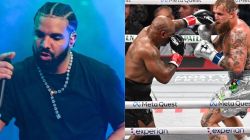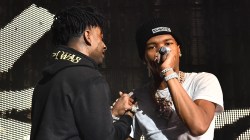“Told you the truth but who was I to brag / Especially how Kymani finds it hard to laugh / I miss my homie but she’s missing her dad / It weighs on my conscience and I hate Conscious Rap…” – Malice, “Footsteps”
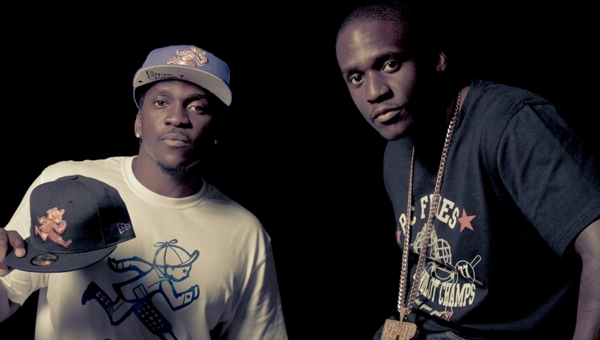 I was listening to Til The Casket Drops—not necessarily mad at it, but definitely wishing it was more like Hell Hath No Fury—when I found Malice quoting scriptures and talking about watching Madagascar with his kids in a way that didn’t sound preachy or forced. I started wondering if Malice and Pusha T had stumbled upon some bastardized form of “Conscious Rap.” The Clipse have voiced their distaste for rhymes with heavy-handed messages over the years. But if this is the new standard for what’s conscious, I’m either glad Conscious Rap, as my generation knew it, is dead or interested to see who else will toss a few more shovels full of dirt on the casket [no pun intended].
I was listening to Til The Casket Drops—not necessarily mad at it, but definitely wishing it was more like Hell Hath No Fury—when I found Malice quoting scriptures and talking about watching Madagascar with his kids in a way that didn’t sound preachy or forced. I started wondering if Malice and Pusha T had stumbled upon some bastardized form of “Conscious Rap.” The Clipse have voiced their distaste for rhymes with heavy-handed messages over the years. But if this is the new standard for what’s conscious, I’m either glad Conscious Rap, as my generation knew it, is dead or interested to see who else will toss a few more shovels full of dirt on the casket [no pun intended].
Nearly everyone was familiar with Conscious Rap back in the ’90s. For those in the suburbs, or those of us in the hoods across America who were bussed to schools in the suburbs, it was a nice alternative to the N.W.A. cassettes that we had to hide from suspecting parents. I can remember beefing with my camp counselor—a bearded white guy who played acoustic guitar—for nearly a whole summer, until we discovered a mutual love of A Tribe Called Quest. Now this shared appreciation of “Verses From The Abstract” didn’t produce some deep moment where we both suddenly understood each other’s cultures. But it pretty much ran the gamut of what Conscious Rap was good for. At best, a song like “New World Water” is a talking point and semi-educational because it comes from a familiar source, as opposed to watching An Inconvenient Truth.
At worst, Conscious Rap was dreadfully corny and heavy-handed with the messages. From Tribe’s “Ham ‘N’ Eggs,” a few dozen horrible imitations, and even my beloved dead prez with the throwaway “Mind Sex.” I challenge any reader to send me proof that you’ve either successfully executed or fallen victim to the “garden salad and chess combination” stic.man describes below:

AD LOADING...
“Now I know you think I wanna fuck and no doubt / But tonight we try a different route / How about we start with a salad / A fresh bed of lettuce and croutons / Later we can play a game of chess on the futon…” – stic.man, “Mind Sex”
I’m in no position to question stic.man’s intentions, and that’s really beside the point. But his line unintentionally illustrates one of the worst things about Conscious Rap. For conscious male emcees, the position of the alternative to gangsters, thugs or whatever you want to call them, was this type of super-sensitive captain save a ho. It emasculated men and robbed us of the fact that a male emcee could be intelligent, articulate and ignorant all on the same album.
For all its hipster-induced faults, that’s one of the beautiful things about Jay-Z’s Blueprint 3 album. In less than 20 minutes, Hov goes from criticizing people “sitting in front of their computers/shooting YouTube up” to advising enemies to give their suit size so they can be properly dressed and buried after the “ruger runs through a few clips.” Is it hypocritical? Maybe. But this is the human dynamic. The pseudo-conscious emcee trying to remake “Bonita Applebum” every album is denying what we all know to be true. In certain situations he will behave just like the gangster/thug he tries so hard to be the opposite of. Ironically, Jay-Z might also provide the best example of why “conscious” Rap is dead. As with most things in Hip Hop, it comes down to the money.
“I dumbed down for my audience to double my dollars / They criticize me for it yet they all yell holla / If skills sold truth be told I’d probably be lyrically Talib Kweli / Truthfully I wanna rhyme like Common Sense / But I sold five mill, and I haven’t rhymed like Common since.” – Jay-Z, “Moment of Clarity”
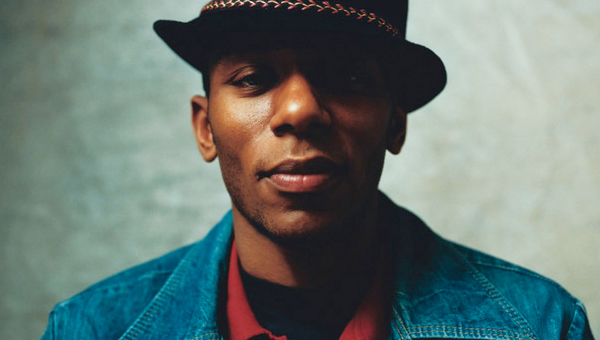 To be fair, there’s a large number of emcees we tried to relegate to the arena of Conscious Rap. They not only took offense to the label, but they found ways to parlay whatever underground success they had into more mainstream visibility and paychecks. Mos Def, once thought of as the poster child for Conscious Rap, has made more movies (11) than albums (3) over the last 10 years. Common, who was also a mainstay on the conscious circuit, is right behind him with four albums and five movies made during the last decade. I would venture to say the only reason Talib Kweli can continue to make anything conscious is because he also knows how to make a catchy single like “Get By.” It also doesn’t hurt that his BlackSmith imprint gives him more creative control and a larger share of profits than he saw during his Rawkus days. The Roots, and other “Soulquarians” once also labeled as conscious are just as likely to appear in a commercial or alongside The Clipse, as they are to release a song like “What They Do.” It’s all about balance.
To be fair, there’s a large number of emcees we tried to relegate to the arena of Conscious Rap. They not only took offense to the label, but they found ways to parlay whatever underground success they had into more mainstream visibility and paychecks. Mos Def, once thought of as the poster child for Conscious Rap, has made more movies (11) than albums (3) over the last 10 years. Common, who was also a mainstay on the conscious circuit, is right behind him with four albums and five movies made during the last decade. I would venture to say the only reason Talib Kweli can continue to make anything conscious is because he also knows how to make a catchy single like “Get By.” It also doesn’t hurt that his BlackSmith imprint gives him more creative control and a larger share of profits than he saw during his Rawkus days. The Roots, and other “Soulquarians” once also labeled as conscious are just as likely to appear in a commercial or alongside The Clipse, as they are to release a song like “What They Do.” It’s all about balance.

AD LOADING...
A couple months ago, during a press junket for Survival Skills, KRS-One made the observation that the declining retail sales of Rap music over the last decade would cause a return to some of Hip Hop culture’s fundamentals. Since Kris is always good for a pull-quote (i.e. “Def Jam singlehandedly destroyed Hip Hop”) many of us took his observation as the type of sour grapes we usually hear from formerly relevant artists of yesteryear. After all, this is usually the part where they start talking about a B-Boy renaissance, complete with boomboxes and Addidas track suits. But KRS wasn’t just talking about culture; he was talking about commerce too.
“I’m taking it back to Zulu Nation when Afrika Bambaataa used to throw jams in Bronx River Houses,” KRS said. “It was understood that Jazzy Jay would make the cassette and dub the tape for this person or that person for $5 or $10. Everybody knew that if you got the tape, you would then be able to sell the tape yourself.”
His tendency to use hyperbole aside, it’s worth noting that Kris was holding semi-automatic weapons on the cover of his first two albums while dropping knowledge on the songs inside them. I can’t speak for everyone, but that kind of balance is all I really ask from an emcee. Don’t kill your crossover appeal in hopes of dropping a jewel on me. One of the things conscious rappers forget when they’re emulating legends from the 80’s is that someone like Slick Rick was versatile enough to give you “Lick The Balls” and “Children’s Story.” Is there any reason why releasing an album which harshly criticizes mainstream, urban radio and being in Nike commercials have to be mutually exclusive? As someone who dropped Hip Hop Lives with Marley Marl then took a nice check from Nike to rhyme next to Nas, Rakim, Kanye and Premier, KRS would likely answer that question with a loud, “Hell no.”
While having this discussion with a friend, the question of if the sub-genre of Conscious Rap could have been saved came up. The thing is, Conscious Rap didn’t necessarily die. Maybe the best thing to ever happen within the last 15 years is that mainstream emcees learned to integrate any socio-political agendas within their bars during the same time “underground” emcees learned how to manufacture good singles. Both groups realized there was no need to alter their appearance or limit themselves to making a certain type of Hip Hop.

AD LOADING...
“Is every nigga with dreads for the cause / Is every nigga with gold for the fall / Nah / So don’t get caught up in appearance / It’s Outkast Aquemeni / Another black experience…” – Andre 3000, “Aquemeni”
Maybe that’s all it really comes down to. I’m a grown-ass man, and my moral compass works fine. I don’t need anybody in crochet pants telling me the difference between right and wrong. As Hip Hop’s new generation starts making their mark on the aughts, 2000’s (or whatever trendy name we give the current decade), they don’t seem to feel the need to set apart a whole sub-genre as “conscious.”
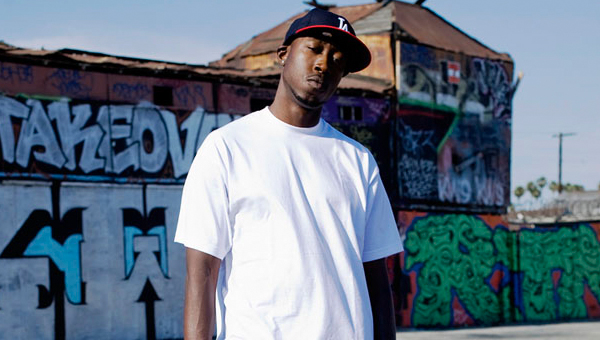 Part of the reason we critics fawn over Blu is because he can seamlessly transition from talking about twisting out the next man’s chick on “Up All Night” to social commentary on “The Only Way.” Can you really be mad at Freddie Gibbs somewhat limited subject matter when he tells you that Gary, Indiana has a 15% unemployment rate? Visit any ghetto and you quickly find out that pissed off, unemployed people have a tendency to smoke marijuana and do things local law enforcement doesn’t like. That’s not conscious or gangsta to me; it’s the truth.
Part of the reason we critics fawn over Blu is because he can seamlessly transition from talking about twisting out the next man’s chick on “Up All Night” to social commentary on “The Only Way.” Can you really be mad at Freddie Gibbs somewhat limited subject matter when he tells you that Gary, Indiana has a 15% unemployment rate? Visit any ghetto and you quickly find out that pissed off, unemployed people have a tendency to smoke marijuana and do things local law enforcement doesn’t like. That’s not conscious or gangsta to me; it’s the truth.
Being conscious always seemed like a cop out for artists who didn’t have crossover appeal. What happens when Lil Wayne decides to speak on George W. Bush’s inactivity during Hurricane Katrina? Is the impact of Rich Boy’s “Let’s Get This Paper” lessened by the fact that his other single, “Throw Some D’s” went platinum? Hell, even Gucci Mane shows his introspective side on “My Own Worst Enemy.”

AD LOADING...
Now that no one is forced to buy a physical album, the so-called conscious emcee can’t present him/herself as the alternative to the norm in hopes of grabbing a small share of album sales. If conscious artists are forced to make better singles and emcees who want to use the word gangster need to offer some social commentary and credibility, we all win. That’s probably why you won’t find anything that could be considered “conscious” on Billboard’s Hot 100 chart. Yet Foreign Exchange is nominated for a Grammy award, The Roots are the only positive in the corny world of late night talk shows, and Styles P sounds better than ever alongside Talib Kweli and Statik Selektah. To me this is exactly what KRS was talking about. Not only does limiting an emcee to conscious subject matter make them one-dimensional, but they’re also likely to go broke.
As long as people are dealing with unemployment, gentrification, police brutality and other issues, there will always be emcees rapping about it. It’s been that way since Grandmaster Flash & The Furious Five dropped “The Message.” And as long as the aforementioned issues exist, people will probably turn on Gucci Mane, New Boyz or DJ Webstar as some form of escape. Part of being truly socially conscious, is accepting those facts, and not throwing on some costume to push your own agenda under the guise of being uplifting. Conscious Rap is dead. Get your black suits up.

